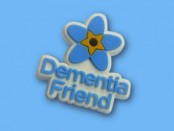Feed babies peanut products to reverse rise in allergy, say scientists
Researchers say children should be introduced to peanuts as soon as they begin eating solid foods, contradicting previous advice Babies as young as four months old should be given peanut butter or peanut snacks, scientists have said after a study predicted that the growing tide of peanut allergies can be reversed. About one in 50 schoolchildren in the UK have a peanut allergy. The number of those allergic in the UK and North America has more than doubled in the last 10 years, and cases have emerged in Africa and Asia. In severe cases the allergy can lead to anaphylaxis, which can be fatal. For years, paediatricians and allergy specialists advised that peanuts should be avoided in the early years of a child’s life. But [More…]





